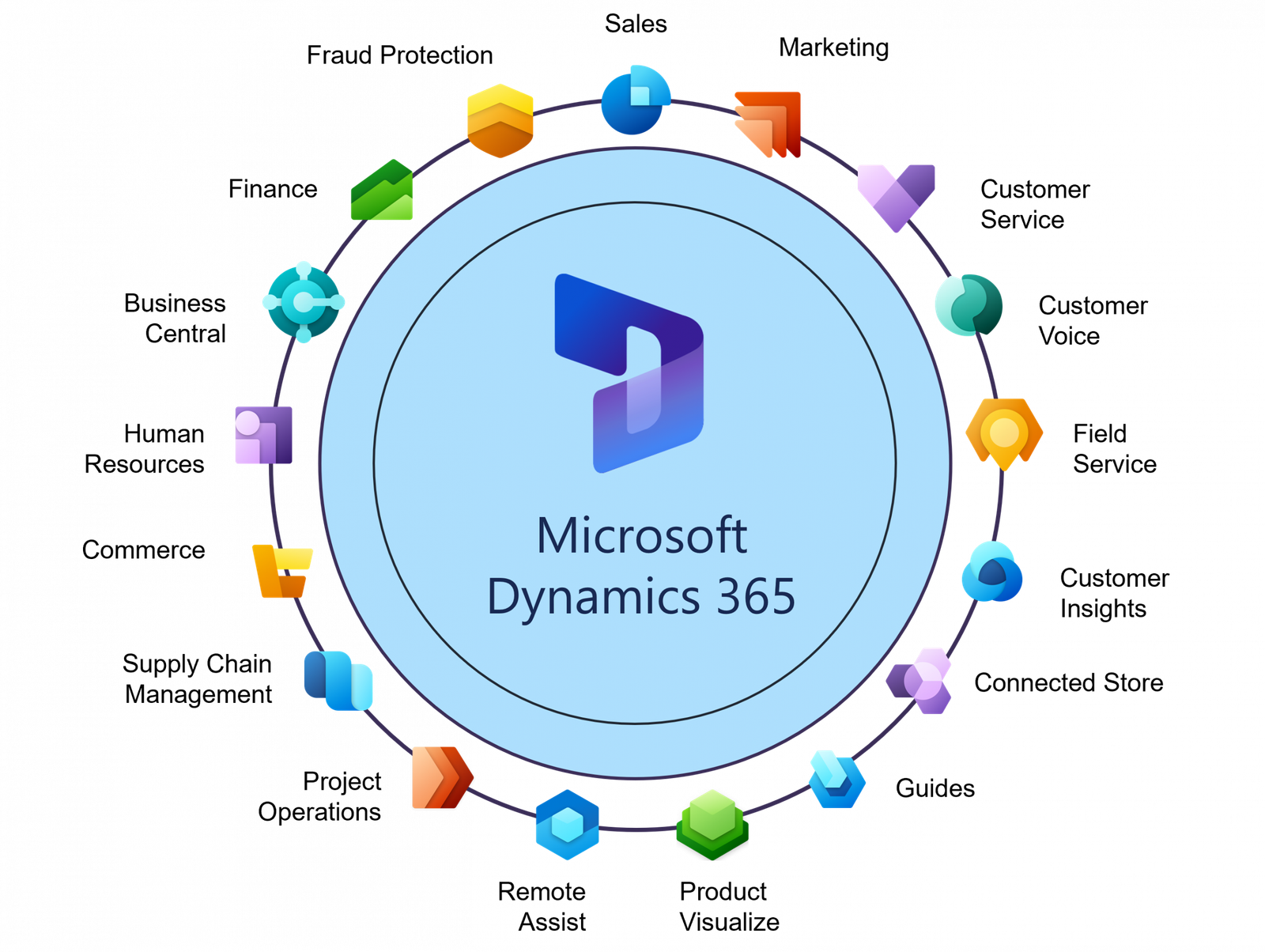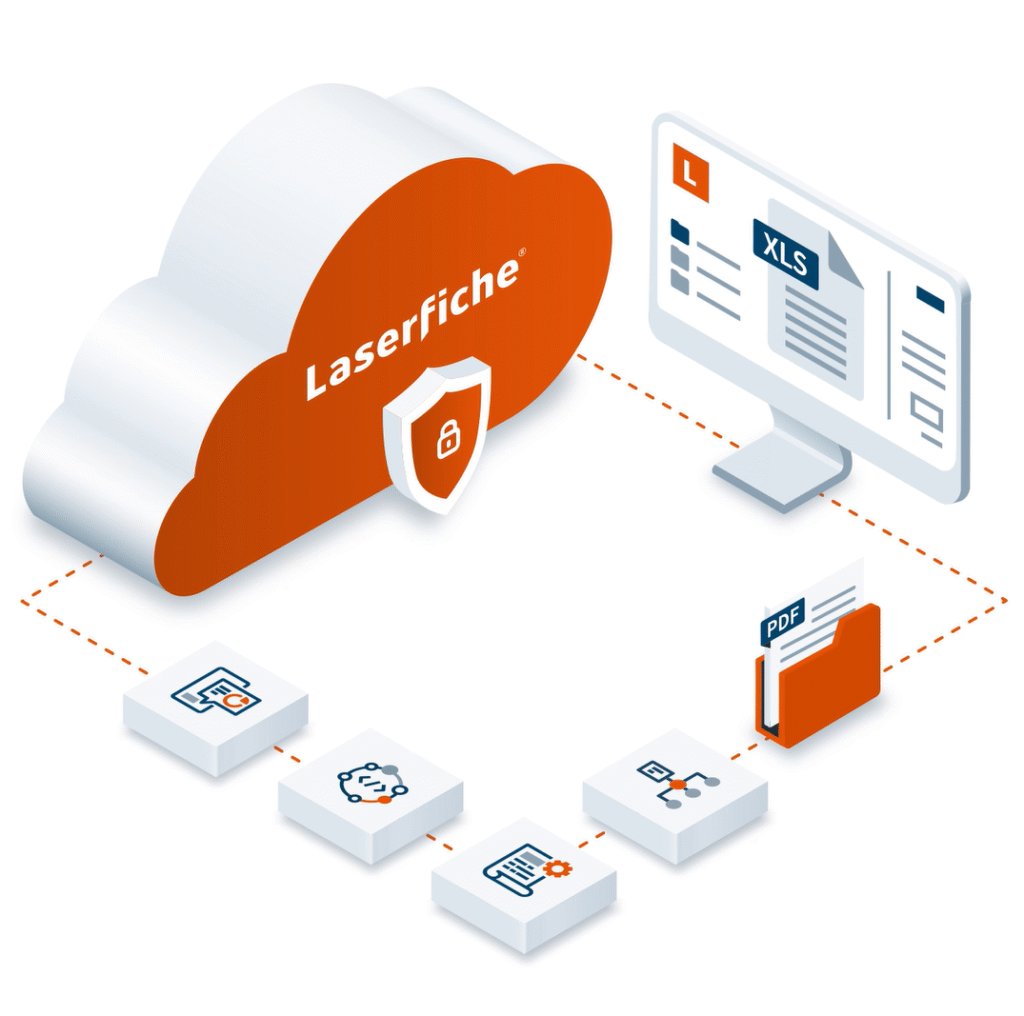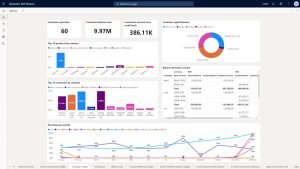Introduction dynamics 365
Microsoft’s Dynamics 365 is a suite of intelligent business applications.
It provides organizations with a comprehensive and integrated solution for administering their business processes by combining powerful capabilities across multiple domains, including sales, marketing, customer service, finance, and operations.
At its foundation, Dynamics 365 seeks to streamline operations, increase productivity, and stimulate business expansion.
It employs cutting-edge technologies such as artificial intelligence (AI), machine learning (ML), and data analytics to deliver actionable insights and facilitate data-driven decision-making.
The flexibility and scalability of Dynamics 365 are two of its primary advantages.
It provides businesses with a variety of deployment options, including on-premises, cloud, and hybrid configurations.
This flexibility makes it appropriate for businesses of all sizes, from small ventures to large corporations.

What are some of the key features of Dynamics 365 that support digital transformation initiatives?
Dynamics 365 includes a variety of essential features that facilitate digital transformation initiatives.
Its unified platform incorporates multiple business applications, facilitating data sharing and departmental collaboration.
This integration eliminates organizational silos, promotes cross-functional collaboration, and offers a comprehensive view of the organization’s operations.
Dynamics 365 facilitates efficiency, agility, and improved decision-making by integrating various business aspects.
Dynamics 365 provides deployment options in the cloud. This enables businesses to leverage the cloud’s scalability, flexibility, and accessibility to applications and data from any location.
Additionally, cloud deployment eliminates the need for on-premises infrastructure and reduces maintenance expenses.
Infrastructure management won’t divert organizations from their goals for digital transformation thanks to automatic updates and built-in security.
Dynamics 365 includes cutting-edge technologies, including artificial intelligence (AI) and machine learning (ML).
These capabilities automate processes, analyze enormous quantities of data, and provide insightful insights.
AI-powered features such as chatbots, virtual agents, and predictive analytics increase consumer engagement, enhance service delivery, and facilitate the creation of personalized experiences.
ML algorithms enable intelligent recommendations, forecasting, and anomaly detection, empowering businesses to make decisions based on data and identify new opportunities.
What is the importance of Dynamics 365?
Dynamics 365 offers several important benefits and advantages for organizations. Here are some key reasons why Dynamics 365 is important:
Integrated Business Applications
Dynamics 365 provides a suite of integrated business applications that cover various aspects of an organization’s operations, including sales, marketing, customer service, finance, operations, and more.
This integration allows for seamless data flow and collaboration across departments, leading to improved efficiency and productivity.
Streamlined Processes
Dynamics 365 helps streamline and automate business processes, allowing organizations to eliminate manual and repetitive tasks. By automating workflows, organizations can save time, reduce errors, and increase operational efficiency.
Enhanced Customer Engagement
With its Customer Relationship Management (CRM) capabilities, Dynamics 365 enables organizations to effectively manage customer interactions and build stronger relationships.
It provides a comprehensive view of customer data, enabling personalized marketing, sales, and customer service experiences.
This leads to improved customer satisfaction and loyalty.
Data-Driven Insights
Dynamics 365 incorporates powerful data analytics and reporting tools, allowing organizations to gain valuable insights into their operations.
By analyzing data from various sources, organizations can make informed decisions, identify trends, and optimize their strategies for better outcomes.
Scalability and Flexibility
Dynamics 365 is a cloud-based solution, that offers scalability and flexibility to match the evolving needs of organizations.
It can accommodate businesses of various sizes and industries, allowing them to add or remove applications and users as required.
Mobile and Remote Access
Dynamics 365 provides mobile and remote access to its applications, enabling employees to access critical information and perform tasks from anywhere at any time.
This flexibility promotes remote work, collaboration, and responsiveness to customer needs.
Security and Compliance
Dynamics 365 incorporates robust security measures to protect sensitive data and ensure compliance with industry regulations.
Microsoft invests heavily in security and regularly updates the platform to address emerging threats.
How does Dynamics 365 ensure the security of sensitive data?
Dynamics 365 incorporates various security measures to ensure the protection of sensitive data.
Here are some ways in which Dynamics 365 ensures data security:
Data Encryption: Dynamics 365 uses encryption techniques to safeguard data both at rest and in transit.
This means that data is encrypted when stored in databases or during transmission over networks, making it more difficult for unauthorized individuals to access or intercept the data.
Role-Based Security: Dynamics 365 employs role-based security models, allowing organizations to define and assign user roles with specific access permissions.
This ensures that users only have access to the data and functionality necessary for their job responsibilities, reducing the risk of unauthorized access.
Authentication and Access Control: Dynamics 365 supports various authentication methods, such as username/password, multi-factor authentication (MFA), and integration with Azure Active Directory. These authentication mechanisms help verify the identity of users accessing the system.
Additionally, access controls allow administrators to define granular permissions and restrict access to sensitive data based on user roles and responsibilities.
Auditing and Monitoring: Dynamics 365 includes auditing and monitoring capabilities that track user activities, system changes, and data access.
This helps organizations detect and investigate potential security breaches or unauthorized actions.
Detailed audit logs provide visibility into who accessed what data and when allowing organizations to maintain compliance and quickly identify any malicious activities.
Data Loss Prevention (DLP): Dynamics 365 offers data loss prevention features to prevent accidental or intentional data leaks.
It allows organizations to define policies that monitor and control the movement of sensitive data within the system. For example, organizations can set up rules to prevent the sharing of certain types of data outside the organization or encrypt data when exported.
Conclusion
Dynamics 365 is a robust suite of integrated business applications that provides organizations with numerous benefits and advantages. It allows for streamlined processes, improved customer engagement, data-driven insights, scalability, and adaptability.
Through data encryption, role-based security, authentication, and access control, auditing and monitoring, data loss prevention, regular security updates, and compliance with industry standards and regulations, Dynamics 365 ensures the security of sensitive data.
Organizations can optimize their operations, increase their productivity, and drive digital transformation by leveraging Dynamics 365.
The suite’s extensive functionality, cloud-based nature, and mobile accessibility enable businesses to adapt to shifting market dynamics, strengthen customer relationships, and make data-driven decisions.
Dynamics 365’s emphasis on integration, automation, and security aids organizations in achieving their strategic goals and remaining competitive in today’s swiftly changing business environment.








